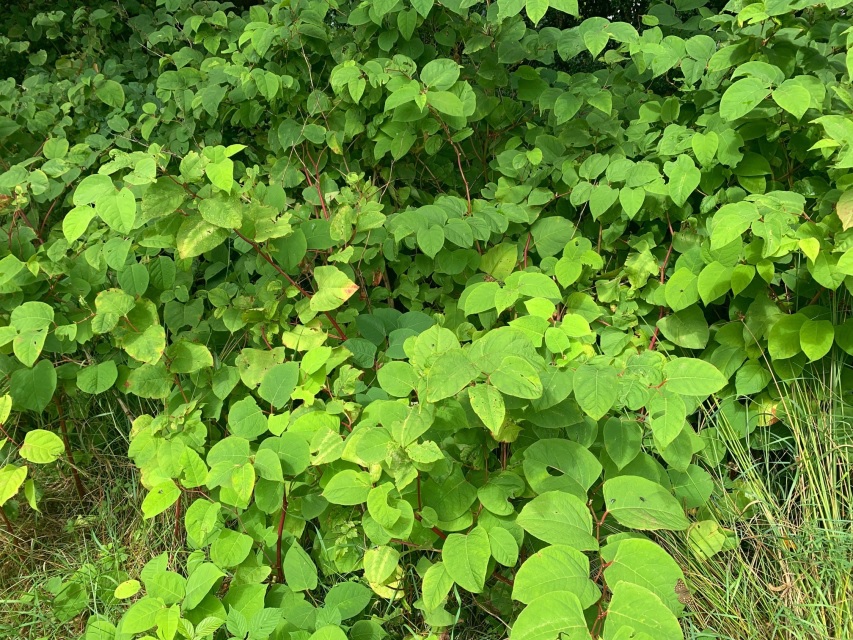
Japanese knotweed is known for causing havoc in gardens across England and Wales. This aggressive invasive species spreads fast and can cause structural damage to homes and buildings. Its presence may even decrease the value of your home or discourage mortgage companies from lending to you, so it is vital that you tackle the issue properly.
What is Japanese knotweed?
Japanese knotweed is a strong and fast-spreading perennial plant. While not native to the UK, it can be found in numerous locations throughout the country. It spreads quickly due to its aggressive rhizome root system - these rhizomes can grow up to 4 metres deep, meaning they require treatment and disposal by specialist teams to remove the plant.
Japanese knotweed can look very similar to other decorative plants, so be sure to read our Japanese knotweed identification guide and learn what to look out for in your garden.
Who is responsible for removing Japanese knotweed?
In England and Wales, it is a criminal offence to encourage the growth of Japanese knotweed or allow it to spread. Clearing the weeds as soon as possible is key if you don't want to damage to your property or run into legal trouble.
If Japanese knotweed is on your property, it is your responsibility to organise its removal. The plant can be cleared via excavation or through a herbicide treatment. It is strongly recommended that you arrange this with a professional, qualified specialist, as there are many regulations governing how to dispose of Japanese knotweed.
If there is Japanese knotweed in a neighbour's garden, you should discuss this with them if possible. It is not a crime to have Japanese knotweed on your property; however, if the knotweed spreads to your land, you may be able to take legal action against your neighbour for creating a nuisance.
In 2014, a law was introduced allowing local governments to penalise people for not taking adequate steps to eradicate Japanese knotweed. Talk to your local council's environmental team, who will have the authority to encourage your neighbour to address the problem if necessary.
Read More: What to Do If Your Neighbour Has Japanese Knotweed
I'm renting a property - is it my landlord's responsibility to get rid of Japanese knotweed?
Check your contract to see whether you are responsible for the removal of Japanese knotweed. Some landlords may put clauses into contracts that agree the tenant is responsible for removing invasive plant species. They may assist you with the task due to the aggressive nature of the plant and the potential damage to their property.
Once you have figured out who needs to clear the weed, it is time to act. Total Weed Control's Japanese knotweed treatment plans are very reasonably priced, making tackling this problem easy and affordable compared to other weed removal specialists. Our team of technicians will be able to assess the extent of the damage and best advise you on how to address the issue with a free survey.
Call us today on 029 2039 7554 to arrange a free weed removal consultation, or get in touch for more help and advice on clearing Japanese knotweed.
Request a Free Japanese Knotweed Survey >
